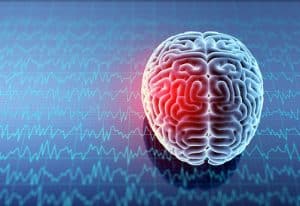
If someone else caused your brain injury to occur, you also want to know about your pituitary dysfunction so you can receive compensation for costs and losses associated with this serious health problem.
he pituitary is a small area of the center of your brain that is about the size of the uvula. The pituitary is surrounded and guarded by bone, but it does hang down. When it becomes damaged as a result of a brain injury, the damage normally occurs as a result of the fact the pituitary was affected by reduced by reduced blood flow. It can also be harmed directly from the trauma, and only a tiny amount of damage can cause profound consequences.
Many of the important hormones that your body needs are controlled by the pituitary working with the hypothalamus. If the pituitary is damaged, the result can include a deficiency of Human Growth Hormone (HGH). This deficiency can affect your heart and can impact bone development. Thyroid Stimulating Hormone (TSH) can also be affected, which could result in hypothyroidism. Sex hormones (gonodotropin); Adrenocorticotopic hormone; and many other hormones could be impacted as well, causing fertility problems; muscle loss; sexual dysfunction; kidney problems; fatigue; or even death.
Unfortunately, problems with the pituitary gland may not always be visible on MRIs or other imaging tests because the pituitary is so small. Endocrinologists who handle hormone therapy frequently are not familiar with brain injuries, and may not make the connection that your brain injury was the cause of the problem
If you begin to experience hormonal issues following an accident, you should be certain to get an accurate diagnosis to determine if your brain injury played a role. If it did, those responsible for causing the accident could be responsible for compensating you for the harm you have experienced to your pituitary and to the body systems which malfunction as a result of your new hormonal issues.
